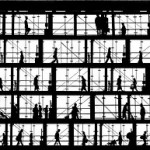J. Crew and Fair Trade Denim
In an attempt to participate in ethical consumption, J. Crew is now selling Fair Trade certified denim that, “uses less water, chemicals, and energy to produce”. Through supporting local manufacturing communities, the J. Crew Group marks its ideological shift from a for-profit mentality to becoming more socially responsible. The company states that through employing Fair Trade certified manufacturers, the profits will go towards the local communities that can support housing, education, and infrastructure, thus playing into the ethical consumer narrative.
Following Frank Trentmann’s article, “Before ‘Fair Trade’: Empire, Free Trade, and the Moral Economies of food in the Modern World”, he acknowledges Fair Trade as a means to bring morality back into the economy. Through an analysis of the moral geography of trade and consumption over time, he makes the point that globalized commerce and consumption has been moralized throughout modernity as evident by the existence of free trade and global social justice. Furthermore, he discusses the concept of caring at a distance as, in the context of food, ethically minded consumers play an important role in the construction of the industry. In the context of the article, J. Crew consumers are made to feel like they are making a difference in distant communities through purchasing J. Crew denim. Furthermore, their draw towards purchasing ethically produced clothing items reflects the themes of social justice as articulated by Trentmann.
https://www.businessinsider.com/jcrew-madewell-fair-trade-certified-denim-collections?r=US&IR=T
Reference:
Trentmann, F. (2007). Before “fair trade”: empire, free trade, and the moral economies of food in the modern world. Environment and Planning D: Society and Space, 25(6), 1079-1102.
Contributed by KatherineDeSilva on 24/02/2019






